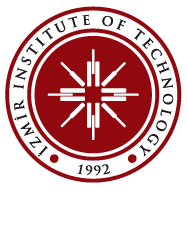Program Objectives and Outcomes
Educational Goals of Food Engineering Department:
- They work in private or public institutions and organizations in the national/international food sector with their knowledge of Food Engineering.
- They receive graduate education at universities in the relevant field.
- They work as researchers in universities and research centers with their lifelong learning skills.
Vision and Mission of Food Engineering Department:
Our department is dedicated to training researchers and engineers who are environmentally conscious, professional, and ethical. These individuals will create outputs that benefit both the industry and society while considering the principles of nutrition science and food engineering for the evolving food industry.
| PO 1a | Adequate knowledge in mathematics, science and engineering subjects pertaining to the relevant discipline; |
| PO 1b | Ability to use theoretical and applied knowledge in these areas in the solution of basic and complex engineering problems |
| PO 2a | Ability to identify, define, formulate, and solve complex engineering problems |
| PO 2b | Ability to select and apply proper analysis and modeling methods for this purpose |
| PO 3a | Ability to design a complex system, process, device or product under realistic constraints and conditions, in such a way as to meet the desired result |
| PO 3b | Ability to apply modern design methods for this purpose |
| PO 4 | Ability to select and use modern techniques and tools needed for analyzing and solving complex problems encountered in food engineering practice; ability to employ information technologies effectively |
| PO 5 | Ability to design and conduct experiments, gather data, analyze and interpret results for investigating complex food engineering problems or discipline specific research questions |
| PO 6a | Ability to work efficiently in intra-disciplinary teams |
| PO 6b | Ability to work efficiently in multi-disciplinary teams |
| PO 6c | Ability to work individually in food engineering topics |
| PO 7a | Ability to communicate effectively, both orally and in writing; knowledge of a minimum of one foreign language; ability to write effective reports and comprehend written reports, prepare design and production reports, make effective presentations |
| PO 7b | Give and receive clear and intelligible instructions |
| PO 8 | Awareness of the need for lifelong learning; ability to access information, to follow developments in science and technology, and to continue to educate him/herself |
| PO 9a | Knowledge on behavior according ethical principles, professional and ethical responsibility |
| PO 9b | Knowledge in standards used in engineering practices, work and lab safety |
| PO 10a | Knowledge about business life practices such as project management, risk management, and change management |
| PO 10b | Awareness in entrepreneurship, innovation |
| PO 10c | Knowledge about sustainable development and production |
| PO 11a | Knowledge about the global and social effects of food engineering practices on health, environment, and food safety, and contemporary issues of the century reflected into the field of engineering |
| PO 11b | Awareness of the legal consequences of engineering solutions |
| PO 12a | Basic knowledge in metabolism of nutrients in foods |
| PO 12b | Use of this knowledge to solve nutrition related problems |
